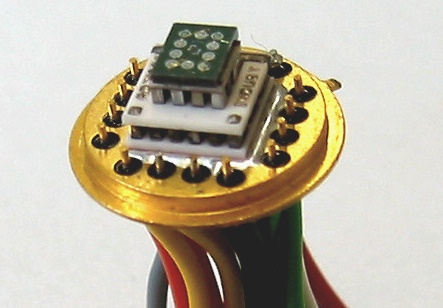QuLight


In Photonic Quantum Computers (PQCs), the ability to measure single photons is crucial. These measurements allow us to read out the quantum states of photons after they exit a quantum processor. Operating a quantum computer based on integrated photonics requires thousands of such detectors. Scaling up these quantum computers necessitates finding a smaller, cheaper, and non-cryogenic alternative to the traditional SNSPD detectors.
The QuLight Detection project addresses this need by developing a Single Photon Detector (SPD) that is significantly more scalable than existing detectors. Our SPD is based on a highly efficient Single Photon Avalanche Detector (SPAD). Unlike SNSPDs, SPADs do not require cryostats for operation, leading to a tenfold decrease in energy consumption, a thirtyfold reduction in size, and a tenfold decrease in cost.
A key objective of this project is to improve detector efficiency, particularly in coupling light from the quantum processor. The enhanced detector will be capable of replacing half of all detectors currently needed in a quantum computer. This advancement will bolster innovation and cooperation among SMEs and the Center for Integrated Technology and Chips (CITC) within the high-tech ecosystem of the eastern Netherlands. We aim to make significant strides in SPAD performance and minimize coupling losses.
The main innovation will result from merging the expertise of QuiX in quantum computing, Vtec in photonic chip design and fabrication, and CITC in chip packaging and Photonic Integrated Circuits. Additionally, CITC plays a crucial role in connecting academia and industry in chip integration technology in the eastern Netherlands.
The outcomes of the QuLight Detection project will strengthen both the knowledge base and economic position of the eastern Netherlands, fostering a robust environment for high-tech innovation and industry collaboration.
